Your cart is empty
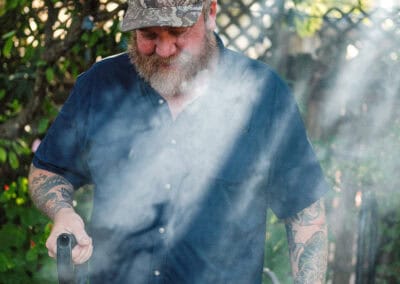
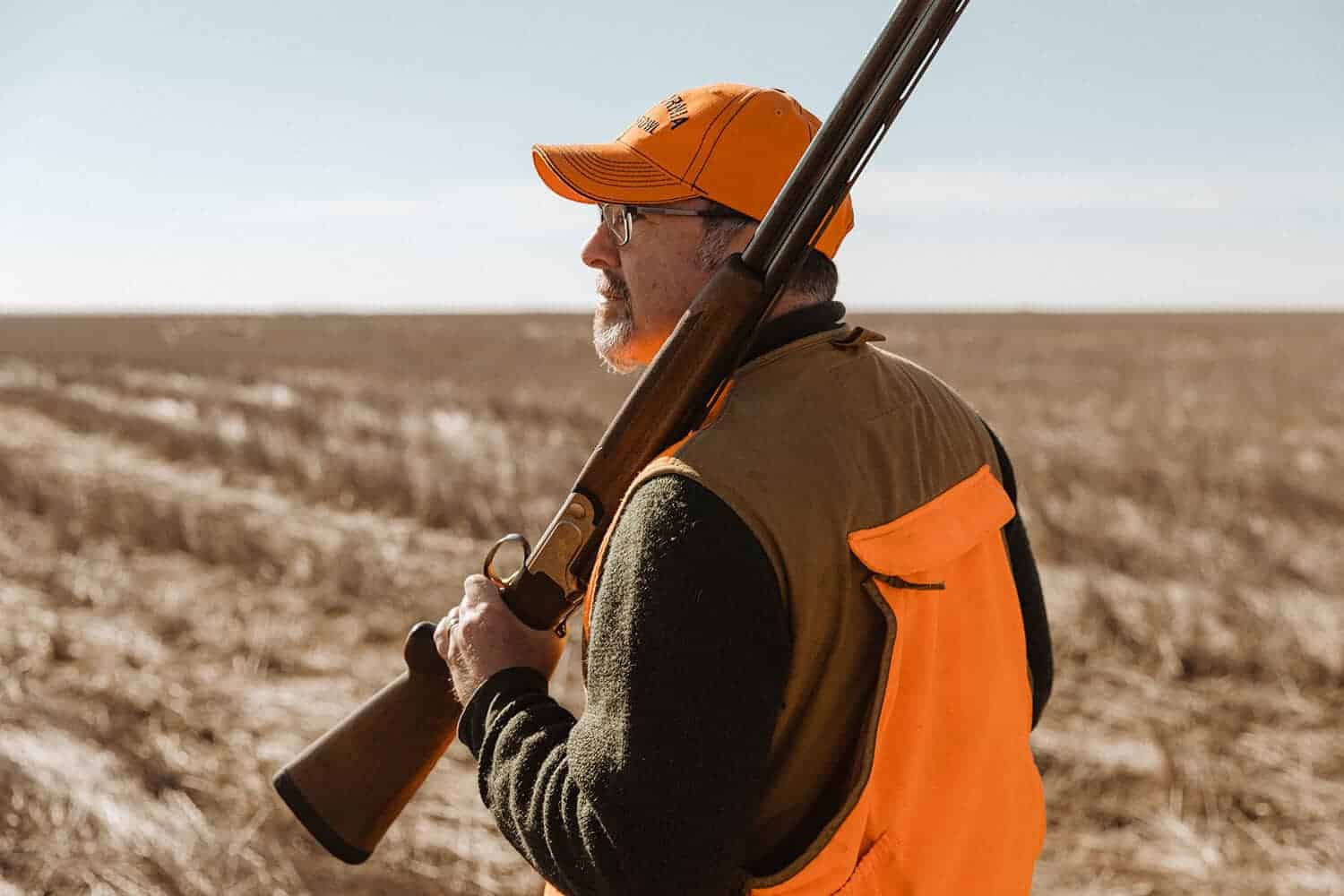
When I told Hank Shaw how we typically prepare our woodcock in the fall, he unapologetically told me it was a crime, dishonor and disservice. In many ways, he was right.
The offense in question was our removal of the tiny bird’s skin. He wasn’t malicious in his criticism, but rather genuine. To Hank, the character of wild birds can only truly shine when the feathers are plucked, leaving that important layer to lock in flavor when roasting and to crisp when laid in a hot, oiled pan.
My family has been eating skinless timberdoodles for decades. Each small bite is a blessing. I revere them, and often daydream of their flight over a backdrop of young aspen and the musings of Aldo Leopold. Hank has helped me recognize my responsibility to uphold that love with an extra step from field to plate. While our preparation isn’t necessarily wrong, he exposed the need for us — as hunters — to put our food traditions on trial, to call tattered, handwritten recipes into question, and reform our preconceived notions of wild game cooking.
Jens Heig: Many people have different superstitions about the best way to prepare classic game foods. Is there power in those traditional recipes? Are there misconceptions? Do they need to change? Should they?
Hank Shaw: Yes to all of that. There’s a lot of unpacking to do with what you were just saying. Is there power in these old traditions? Absolutely, because food has to think good as well as taste good. A classic case of that is the popper. When I started doing wild game, I used to look down on the popper, and what I’m talking about is the jalapeño, the piece of meat, the piece of bacon, often with cream cheese wrapped in a roulade and grilled. There’s a million different versions of it, and for many years I looked down on poppers. Then, I actually went to a dove hunt in Brownsville, Texas, a decade ago. You realize that when you’re in dove country, the popper on Labor Day is as important to that holiday as turkey is to Thanksgiving. It’s a talisman. It’s more than just food. It’s a representation to mark the rhythm of the year. It’s not a terribly sophisticated recipe, but nor does it need to be, because it means more than just sustenance. That’s an example of a very classic dish that can be tinkered with, but it deserves to live.
There are other dishes that I think should not deserve to live. A classic case would be a wonderful bird like a fat mallard or a fat pintail, skinning it, and cooking the hell out of it. That is the reason why many people think they hate eating duck. That and geese may be the most abused game in the United States. At least with something like venison, typically a family will have some way to make it, eat it, and they’ll be okay.
It’s why the first single-subject cookbook I wrote was Duck, Duck, Goose, because there’s much that needs to be explained and demystified when it comes to waterfowl that is not widely held knowledge. The problem is that people think ducks are birds, but in the kitchen, ducks are not birds. In the kitchen, ducks are beef. You treat a breast like a steak and you treat the legs and wings like brisket, slow and low. If you get that, you’ve cracked the code.
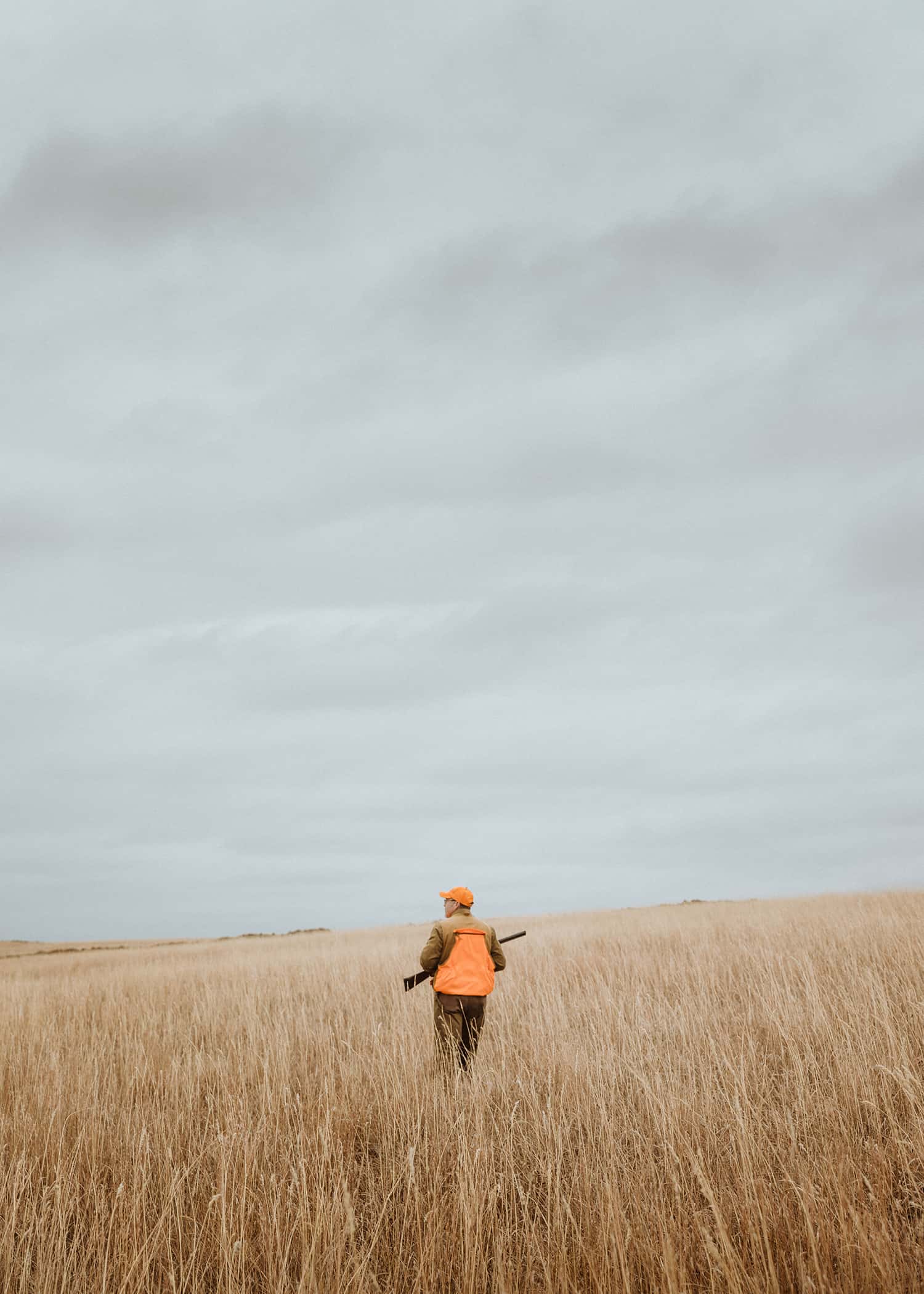
Did the Europeans figure it out earlier? Or have those techniques and traditions been passed down longer and Americans just didn’t take the same approach to cooking duck? Or is there no disparity there between Europe and North America?
There is definitely a difference between the United States and most other countries when it comes to waterfowl. I think the connection — and I’m just thinking on the fly here — would have to do with Great Britain. Our primary food traditions and dominant culture in this country are from Great Britain and Ireland. Neither of them do duck well. They do now, but historically they did not. Then, the other big thing you get in American cooking is German. There’s a lot of German influence as well, and the Germans cook the crap out of their ducks, too.
Yeah, you could take a fat duck and roast it for three hours and the skin will be crispy and the legs will be amazing, but what you’ve just done is rendered the breast meat as simply a vehicle for gravy. If you’re into that, that’s fine. At least you’re eating duck. The French and Italians pretty much pioneered the whole “breast meat as steak” kind of thing. I think it’s just because Americans fear food. Plain and simple.
We’re probably the nation that is the most scared of our food supply because it has failed us at times. There are e.coli outbreaks, and in the case of poultry, there’s salmonella. People don’t seem to know that the strain of salmonella that affects ducks does not affect humans. The strain of salmonella that inhabits chickens does transmit to humans, but salmonella, listeria and many of these other food-borne illnesses are a product of farming — factory farming, to be more specific.
“Find something in that wild world that lights a fire underneath you and make it part of your family’s existence.”
For all of my books — and I have now done three, virtually single-subject, game cookbooks — I spend a lot of time digging deep into CDC, USDA and FDA records, food-borne illness records and scientific papers. Long story short, people don’t get sick off of wild game. There are exceptions, things like bears and pigs and big cats. The amount of food-borne illness from pheasants and quail and grouse, even venison, is infinitesimal. You have a better chance of being hit by lightning or being eaten face-first by a shark than you do of getting a serious food-borne illness from wild game. I mean, all of this is predicated on proper handling, but yes.
Often people will equate wild food with dirt. They think it’s dirtier or more unclean than factory-farmed food. In fact, the opposite is the case. A mentality that you have to cook the shit out of it doesn’t always serve you well if you’re dealing with the luxury cuts of an animal, and by that I mean breasts or backstrap or tenderloin.
Would you say that people are paying more attention to how they prepare their food? Not necessarily just game — do you think people approach cooking less as a chore and more as a leisure activity?
Depending on who you’re talking to. I think if you’re talking to the hunting and fishing public, 100%. If you’re talking to greater America, I don’t think so. Now, who knows? With coronavirus, that might create a little blip in the system where people are staying at home and they have to cook.
The advent of food television — which is now a decade or so old — has entered in a little bit of a machismo aspect to wild game cooking that did not exist when I first started doing what I do. At first, I was this freaky guy who did things that nobody else did, and people thought I was crazy, and I’m okay with that. Dealt with it my whole life, and it is what it is.
Now, I’m starting to see way more people do things with their game that you never would have 10 years ago. I think there’s an element of machismo. Not only can I kill more ducks, but I can cook them better. I think the competition aspect of food television has fed that.
Tell me about your philosophy when it comes to buying food.
I have bought meat or fish but a handful of times in 15 years. I can count on one hand the number of times that I’ve actually purchased a protein. I bought a couple of really nice Gucci chickens from a farmer. I bought a couple of octopus because they’re fiendishly difficult to catch, and I have a friend who’s a hog farmer in Michigan who raises amazing Ossabaw pigs because I have a soft spot for really, really high-quality pork, so I bought a few of those.
I often get asked, “What’s your fast food weakness?” It’s Chipotle. What’s my domesticated food weakness? It’s really good pork. When I got into doing all of this, I had been learning more and more about the industrial meat system, and I found it ugly. That’s putting it gently. There are some true horror stories that happen in industrial meat. I made a conscious decision to minimize my use of it, and I use that term because I’m not a monk. I’m not going to go out to eat and turn my nose up at everything. Basically, I consider that virtue signaling in a bad way.
Yeah, like “holier than thou.”
Exactly. “Look at me. I’m so righteous.”
I’m not that kind of guy, but at home, if I can hunt it or fish it or forage it, I would way rather do that than buy it. My suggestion for anybody reading this would be to find something in that wild world that lights a fire underneath you and make it part of your family’s existence. Maybe it’s deer hunting. Maybe it’s bird hunting. Maybe it’s fishing in the Gulf of Mexico. It can be picking blackberries, for all I care. Expand your connection to the wild world.
Doing that accomplishes two things. One, it gets you a little bit closer to the way human beings are built. For 190,000 of our 200,000 years as a species, we have eaten a little bit of many different things. Only in the last 10,000 years have we started to eat a lot of a little. We are less healthy when we do that, we are stunted when we do that and — most importantly from my perspective — we lose our connection to the natural world. This is applicable to vegetarians as well. I don’t care if you don’t like meat or fish. Put something wild in your diet and make it part of your family’s DNA, because you will take ownership in the wild world if you’re eating from it and it’s part of your personal food system.
If you don’t do that, fine, but it makes it real easy for you to say, “Who cares about that forest or that prairie or that marsh or that seashore?” No skin off your nose. You have no stake in it. But what if that’s where you clam? What if that’s where you hunt ducks? What if that’s where you pick mushrooms?
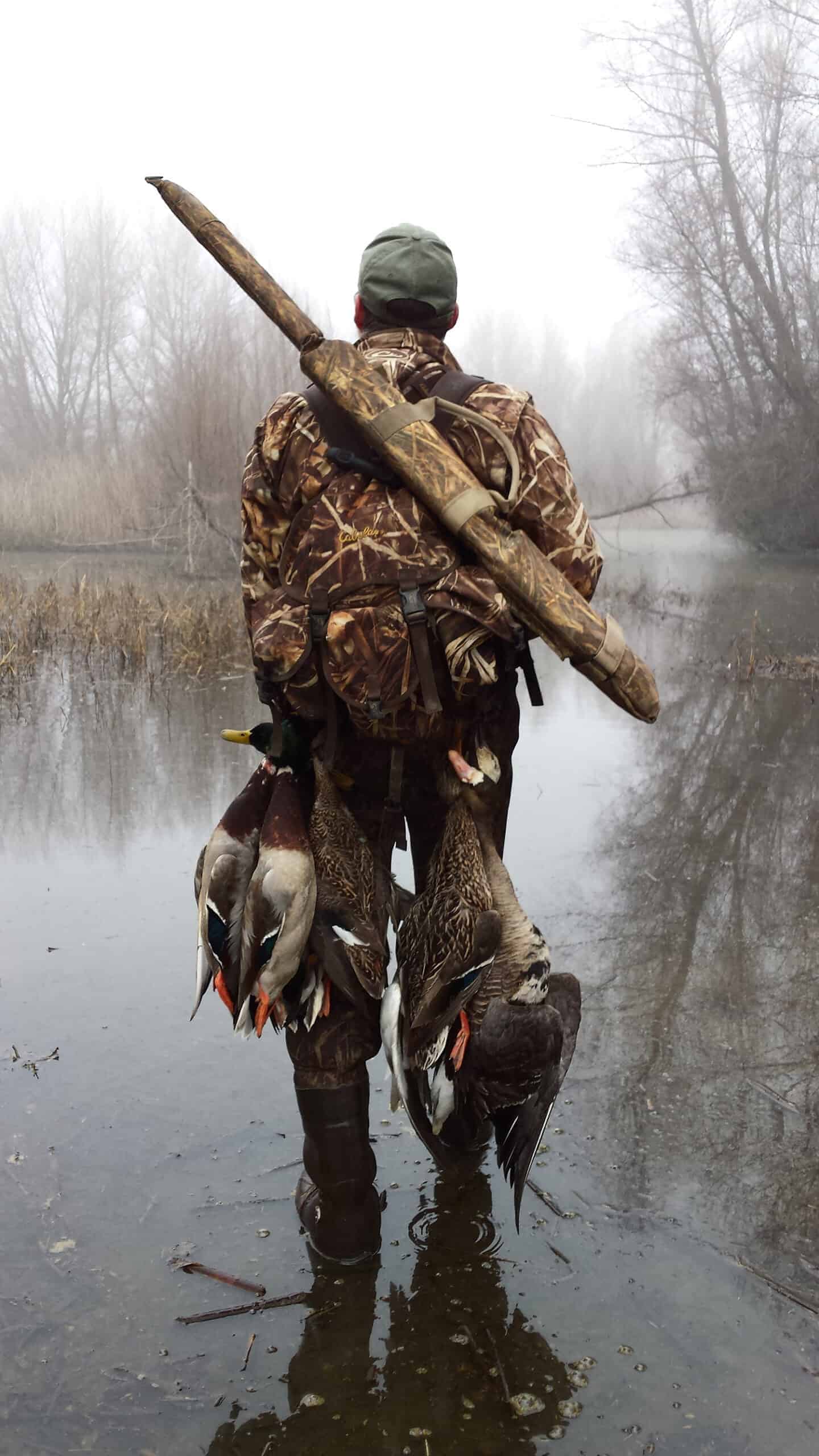
You study anthropology and how people have used particular foods for millennia. Can you share your process? What do you seek to learn?
If I’m going to do a dish from a culture I’m not familiar with, I have to, at the very least, understand the dish. What it’s supposed to look like, how it’s supposed to taste and what makes it, it. Here’s a great example. I was in Michigan and we were having an otherwise very nice meal, but on the menu was a dish that they said was Cioppino with no crab. I’m sorry, it’s not Cioppino without crab. Period, end of story. You could riff off of Cioppino any way you wanted to, deconstruct or whatever, but it has to have fucking crab in it.
“If you have a bunch of ingredients that are not easy to make delicious, chances are the native people of that region have figured it out. If they haven’t, be careful.”
This chef didn’t understand what the linchpin was in that particular dish. I’m sure it was perfectly good fish soup, but if you tell me it’s a Cioppino, I have certain expectations. Whenever you’re doing a dish that’s reasonably unfamiliar, you have to at the very least know the dish. Beyond that, when we’re talking about wild food — foraging is specifically where this probably comes into play the most — we have to consult people who were here before us. Native people have been working with these foods way longer than we have. You would be foolish not to listen to what they have to say about it.
There are a bunch of different indigenous groups here in California. There’s the Maidu, there’s the Miwoks up the hill, the Paiutes, and those are just our local groups. There is a lot of work being done on indigenous food. So if you are of that extraction, it has an entirely different meaning to you than it would to me, with little or no Indian blood in my background. This helps me understand not only the context of a foreign ingredient, but how you actually make it delicious. If you have a bunch of ingredients that are not easy to make delicious, chances are the native people of that region have figured it out. If they haven’t, be careful.
If you’re going to do somebody else’s food, you have to understand it as well as anybody, especially as an outsider. The single reason why I have been working virtually nonstop for over a year on learning to speak Spanish is because I want to go and explore food in Latin America in that language. I wrote an essay called “The World in a Tortilla” some time ago, when I started really trying to make tortillas by hand, and it sounds simple, but it’s very hard.
I’ve read that, and you’re totally right. For something with only a couple ingredients, tortillas are really hard to make correctly.
This is the foundation upon which the entire cuisine is built. Whether it’s flour tortillas in the north, corn in the south, or tamales, this is the foundation. It’s like pasta in Italy. Until you can speak the language in a culinary sense, you’re not going to get it. If I’m going to cook Mexican food, I better damn well be able to cook it for Mexicans and they have to like it.
I have the luxury of being able to do this full-time to make mistakes and so you don’t have to. That’s why I’ve worked so hard at wild game. I don’t know how many elk you shoot in a year, but chances are it’s one or none. If I give you a recipe for tenderloin and my recipe doesn’t work, you can’t go to a store and buy another one. I feel that pressure with every recipe that I make, because with game and fish and forage things, they’re precious. They’re not mass commodities. You can’t buy another 10 pounds of Porcini mushroom. If you can, you’re rich and you don’t need my help.
Not to add more pressure or anything like that, but I think the experience people have with animals they harvest or kill is as important as the scarcity of it. For instance, my wife shot her first whitetail last year and I cooked the backstraps for her family at Thanksgiving, who are not hunters.
Yeah, you bring up a great point. That’s that example where if you mess it up, she may not hunt again and her family is like, “Deer sucks.”
Hank’s website, Hunter Angler Gardener Cook, is one of the best sources of wild game recipes on the internet. We featured his recipe for duck with turnips and rye spätzle in Volume Five, get the recipe here.
Exactly. You know what? It was the first thing they finished on their plates.
One of the greatest compliments I ever get — and I’m blessed to get them with some frequency — is somebody will email me and say, “My boyfriend, or my husband, or my wife hated wild game. I used your recipe and they now love it and want me to hunt more.” That’s the single greatest compliment I can get.
Screw The James Beard Award. I want more of those because that’s making the difference.
Let’s talk about small game in particular. I heard you’re working on your own grand slam, right?
It fits into my life as a whole. I have zigged where other people zag. I just find it more interesting to do that. If everybody else was listening to pop music, I was listening to Ska. If everybody else was buying an Apple, back in the day I would buy a Commodore or a PC.
I have a history of doing things like that, and I’ve realized that many hunters in this country are looking for that North American big game slam. That’s nice. It would be fun, but I much prefer small game for a lot of reasons, not the least of which is as a traveler, it’s way easier to travel for small game than it is for big game. There’s also the diversity of species, the diversity of environments, the diversity of flavors. In all of those, small game wins, hands down.
I eat better than anybody does as a big game hunter because all you’re doing is eating red meat, and occasionally wild pigs. Just as an eater and as a cook, it’s way more interesting to hunt small game. You see more of the world and you interact with different kinds of people. About a year and a half ago, I realized that I was actually closing in on having hunted and eaten pretty much everything with a season and a bag limit that’s smaller than a deer in North America. It’ll take me a couple of years, but I’m closing in.
This year, I’m going to focus on the rails, which I’ve not hunted before. Cane cutter bunnies, or swamp rabbits, which are giant rabbits with short ears that live in the South. I’m going to try and finish the grouse slam by hunting the willow and rock ptarmigan. I still have a couple species of turkeys to go after. There are nine or ten ducks I still have to hunt.
Actually, I wrote an essay about this that will be in an upcoming book about the psychology of the whole endeavor. Yes, I’m interested in checking off boxes and I’d be lying if I told you that I wasn’t, but that’s not really the biggest reason. The biggest reason is by doing those things, I put myself in environments where I wouldn’t otherwise be. I get to see more, experience more, and taste more. I’m kind of an experience junkie.
What’s your favorite small game hunt?
That’s a coin flip between Arizona quail — and that’s kind of a cop-out because there’s three species — and hunting the northwoods for grouse and woodcock. Everything about it is amazing. Where you are, the actual hunt, the eating. I don’t know that I could choose between the two, but they would be the two major small-game hunts that I would want to do until the day I die.
Hank Shaw is a chef dedicated to honest food that comes from the wild. His website, Hunter Angler Gardener Cook, won the James Beard Award for best food blog in 2013 and he has authored four cookbooks, with more on the way.
Related Stories

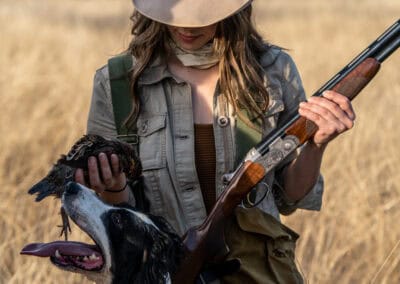

Latest Stories


